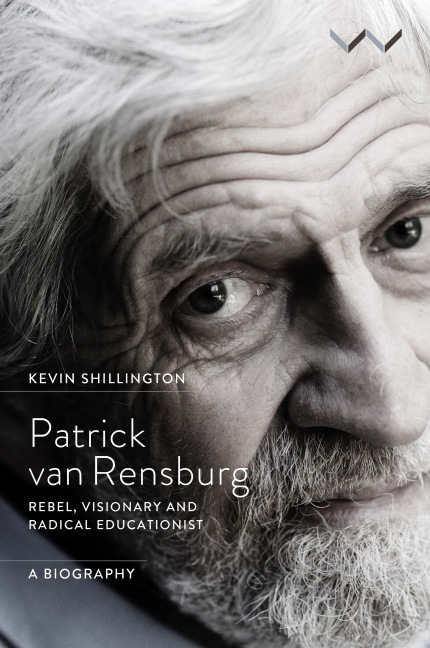Book contents
- Frontmatter
- Dedication
- Contents
- Acknowledgements
- Abbreviations and Acronyms
- List of Illustrations
- Maps
- Introduction
- 1 Origins and Identity in South Africa
- 2 An Anglophone South African, 1936–1948
- 3 The Making of an Afrikaner, 1949–1953
- 4 Diplomat and Rebel, 1953–1957
- 5 Anti-Apartheid Activist, 1957–1959
- 6 Boycott, 1959–1960
- 7 Into Exile, 1960–1961
- 8 Return to Africa, 1961–1962
- 9 The Founding of Swaneng Hill School, 1962–1963
- 10 Challenging ‘The Ladder to Privilege’, 1963–1965
- 11 The Alternative Educationist, 1965–1967
- 12 Expansion and Replication, 1967–1969
- 13 Time of Crisis, 1969–1971
- 14 Education with Production, the 1970s
- 15 Foundation for Education with Production and Spreading the Word, the 1980s
- 16 Education with Production and South Africa, the 1990s
- 17 Return to Botswana
- Epilogue
- Notes
- Bibliography
- Index
7 - Into Exile, 1960–1961
Published online by Cambridge University Press: 10 September 2020
- Frontmatter
- Dedication
- Contents
- Acknowledgements
- Abbreviations and Acronyms
- List of Illustrations
- Maps
- Introduction
- 1 Origins and Identity in South Africa
- 2 An Anglophone South African, 1936–1948
- 3 The Making of an Afrikaner, 1949–1953
- 4 Diplomat and Rebel, 1953–1957
- 5 Anti-Apartheid Activist, 1957–1959
- 6 Boycott, 1959–1960
- 7 Into Exile, 1960–1961
- 8 Return to Africa, 1961–1962
- 9 The Founding of Swaneng Hill School, 1962–1963
- 10 Challenging ‘The Ladder to Privilege’, 1963–1965
- 11 The Alternative Educationist, 1965–1967
- 12 Expansion and Replication, 1967–1969
- 13 Time of Crisis, 1969–1971
- 14 Education with Production, the 1970s
- 15 Foundation for Education with Production and Spreading the Word, the 1980s
- 16 Education with Production and South Africa, the 1990s
- 17 Return to Botswana
- Epilogue
- Notes
- Bibliography
- Index
Summary
Patrick flew to Paris on Saturday 16 January 1960, the day before the London boycott conference. He found an unsanitary but cheap room on the Left Bank and spent the next week exploring the French capital, mostly on foot, visiting all the principal tourist sites and enjoying the pavement cafés, where he could drink coffee and read Le Monde like a regular Parisian.
After a week in Paris he caught a dawn flight to Tunis, where he registered at the Second All-African People's Conference as the official representative of the South African Liberal Party.
As Patrick recalled it, the first day of the conference was dominated by the Algerian delegation, whose Front de Libération Nationale (FLN) was fighting a large-scale guerrilla war against the French in Algeria and urged that violent struggle was the only route to independence on the continent.
That may have been true for them, but it did not suit the many delegates who hoped to achieve political independence by non-violent means – a hope fulfilled for most by the end of the year. Apart from that, the main theme of the conference, driven by Ghana, was the danger of neo-colonialism, whereby the colonial powers strove to maintain economic domination of their former colonies after political independence.
But according to Patrick, the news that ‘rocked the Conference’ was the announcement by the Belgian government that it had decided to schedule the independence of the Belgian Congo for 30 June that year. The news was received with euphoria in Tunis as a great victory in the struggle for liberation. And it prompted Patrick to place Leopoldville on the itinerary of his journey home to South Africa.
Patrick was still in Tunis when he read of British Prime Minister Harold Macmillan's historic speech to both houses of the South African Parliament in Cape Town on 3 February 1960. He had spoken of the African nationalism that was delivering such positive results in Ghana, then delivered his bombshell, which contained the phrase that was to define the era: ‘The wind of change is blowing through this continent and, whether we like it or not, this growth of national consciousness is a political fact. We must all accept it as a fact, and our national policies must take account of it.’
- Type
- Chapter
- Information
- Patrick van RensburgRebel, Visionary and Radical Educationist, a Biography, pp. 89 - 110Publisher: Wits University PressPrint publication year: 2020

